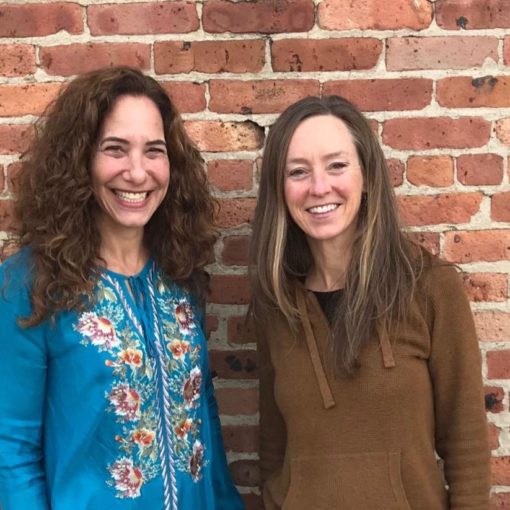Podcast: Play in new window | Download (Duration: 11:45 — 7.7MB)
Subscribe and don't miss an episode! Apple Podcasts | Spotify | Android | iHeartRadio | Blubrry | Deezer | RSS
You’ve tried countless times to start and, more importantly, keep a new, healthy habit.
Some have lasted a day, a week, a month. Others, maybe more. But, ultimately, you just can’t seem to stick to what you promise yourself to. It’s frustrating. Why does this happen? No will power? No support? Life got in the way? We’ve all been there.
Habits can be hard to keep up.
This, after all, is why we do what we do! To try to get people to adopt healthy habits that they keep forever and ever. Or, until they don’t need them anymore. In this podcast, we share how we help our clients make and keep these habits (or let go of ones that they want to let go of). Listen and share!
Below is the transcript.
Wendy
Yeah, so many people get tripped up on starting new habits. And we have a couple of ideas to share with people that can really get them to shift their habits into gear. And we wanted to share them with you.
Debbie
That’s right. This is Debbie.
Wendy
And this is Wendy. Welcome to Nourish Noshes.
Debbie
So three simple steps that aren’t quite really simple. But they’re simple to say, on how to get your habits in line, so that you can start doing things and adopting habits that you really want to have.
Wendy
One of the first things and it’s not one of the three. But we often say we’re going to start tomorrow and next week, and the days and the week. So the biggest one is taking action is just moving into doing the first step. But let’s take it a step backwards. Let’s, what’s the first thing we need to understand around habits?
Debbie
I think it is to know your why. Number one.
Wendy
100 percent, because why do we want to work our bodies and get strong? Why did we want to change our eating habits? Why do we want to stop doing something or start doing something? Right? And if we don’t have that underlying bullseye? Why? We’ll make excuses like crazy.
Debbie
That’s right. And when you know your why, and it when we get to the core of that, why because it’s not just a simple answer–if you work with us, you know that already. Because it’s why and then why again, and then why again. But the idea is when you really understand that why, you don’t falter because it’s so important to you. For example, some people start off saying what my why is “because I want to feel healthy,” or “I want to lose weight.” And then we say, “okay, so why do you want to feel healthy? Why do you want to lose weight?” And you keep asking the why. “Well, because then I would I would feel good every day–I’d have energy.” “But why do you want to have energy?” So it’s uncovering that it’s like getting to the pit of the avocado, right?
Wendy
Yeah, absolutely. I like that so much better than the peeling the onion. Yeah, so your why gets really clear. And this is one of the things we simply ask people to sit down with a notebook and pen and just start writing. What is the reason for this? What’s at the core? Why do I want to do this? Five simple words. Why do I want to do this? Right? Do I want to do this? That was seven. Why is this important? Right? Is this important? Just four simple words. Why is this important? Yeah. Good. Love it. Second step is to get a group together, or a tribe or a person or some sort of accountability, because we know that’s why we’re in the health and wellness coaching field. We know that when we have a coach when we have a person who works side by side with us who’s a cheerleader, who we check in with, our success rises dramatically. Some of the best people in the world, the best athletes, the best singers, the best leaders have coaches.
Debbie
Yeah, absolutely. We all need accountability. You know, we are social beings and accountability shows up in that way. The best is by using the leverage that you have with other people, whether it’s bosses, coaches, whether it’s a family member, whether it’s a partner, whatever it is, we need someone or some people to help us move forward.
Wendy
One of the things this accountability group does is helps us be honest. We can kid ourselves about how hard we’re really working or what we’re really giving up or anything. And so there’s a frankness and an honesty about the accountability and it needs to be in a really safe space. You know, there needs to be some unconditional positive regard. The person that you choose to be your accountability partner needs to be– they’re an important person.
Debbie
Yep. And one of our favorite ways of doing this is by having our group sessions we have, we have our six month groups, and they, all of them together, keep each other accountable. They’re excited to show up every week and to report their progress and their forward movement. And it’s that support,that accountability that keeps them going.
Wendy
Yeah, truly, with the groups, they’re showing up for themselves. That’s why they came to the group, but then it becomes a collective showing up for each other. And you feel less alone. It’s really true. We love the groups.
Debbie
Yeah, absolutely. It’s the best and just to put that aside, you and I are accountability coaches to each other!
Wendy
Yes, thank goodness, we were just interviewed on a podcast recently, and they asked, you know, who’s your biggest cheerleader, and we both pointed to each other.
Debbie
That’s right. That’s exactly it. So the third step in keeping up your habits, is to start with tiny baby steps. We often get very excited about taking on new habits. We’re like, “I’m going to do this now. It’s time for me to be healthy, I’m going to lose weight, I’m going to have energy, I’m going to do this.” And you take on really hard things or a lot of things all at once. And ultimately, it doesn’t usually work.
Wendy
Because ultimately our willpower, life derails us. And so we need to learn to be able to take it for the long haul. It is absolutely a marathon, not a sprint. And we we also believe so strongly that it needs to be a sustainable practice. So this stop and start, stop and start is really the diet culture because there’s so many promises that are made about getting things done in a week, or two, or a month. And that’s why we put together six month groups and six month one on one coaching. Because we need to understand how long it took to get where we are today. And so making things easy, gives us these many wins. It gives us many success. And we’re like, yeah, I can prove it to myself by doing these many things. It doesn’t have to be I’m gonna start walking every single day, right? I’ve been working with a client for a few months now. And her first commitment was to walk one day a week, her next commitment moved to two days a week. Now, a couple months later, she’s up to five days a week. And you know, she’s on a week long streak, and she’s so excited about it. But if she had started out with saying I’m going to walk every single day, you know, her success would have plummeted and her personal belief and her resilience would have been off.
Debbie
Yeah, exactly. And then when you don’t do what you promise yourself, you’re gonna do over and over again, it completely unmotivates you and makes you feel not so great about yourself, which makes your habits go away anyway, the habits that you wanted to keep. You know, we were hard on ourselves. And the the little successes, the easy successes allowed us to be able to do things easily and successfully. So that we can be like, Okay, I can do this, I got this. Another one I’ve been working on with a couple of clients of mine is their sleep habits because they were staying up too late. And so instead of saying, Okay, you go to bed at 2am, let’s just switch that bedtime to 10pm. That wouldn’t work. No, it wouldn’t work. First of all, their biology wouldn’t let it happen because they wouldn’t be tired at 10 when they’re used to going to bed at 2am. So the idea is, you know, maybe 15 minutes earlier. Let’s get into bed at 1:45 for a little while, see how that goes. And maybe if that works for a few weeks, let’s push it again to 1:30–whatever works for you, you know, whatever is doable. So and they are both, both of these people, their bedtime has gotten earlier and earlier. And had we done it all at once. I’m sure it wouldn’t have worked.
Wendy
Yeah, that’s for sure. A surefire way to backfire. I read this saying recently. I don’t think it’s a quote for from anyone, it’s: “inch by inch. It’s a cinch, yard by yard. It’s hard.”
Debbie
That’s true. So those three things you know, in a little nutshell, of course we sound simple. It’s not simple, but those are the three areas that you can work on to get a habit going. Give it a try. Give us a call if you want help, and good luck doing it. We’d love to see people moving forward and taking on new wonderful habits–and keep in touch with us to let us know what you’re doing.
Wendy
We’d love to hear about your progress. So just to wrap up those three are, number one is know your why–get really, really clear. Keep digging down into the true reason. Number two, find someone who cares about you deeply. And you can get accountability. So accountability is number two. And number three, is make the habits easy.
Debbie
And remember, please share our podcast with your friends. We’d love to have more people listening in. It’s our free information. You know, what do we have over 120 podcasts? And it’s such great, great information. We always say, we should probably listen to that podcast before we send a link to a client because we made that podcast like four years ago. Let’s listen to it. We do that–we listened to it and we’re like, “Wow, that’s good.”
Wendy
And it really is a gift out there to be able to share these ideas and we hope the conversation continues. You know, when you share it with a friend and you both talk about the information that you’ve gleaned, you know, the ripple effects can be amazing. So thanks for sharing.






